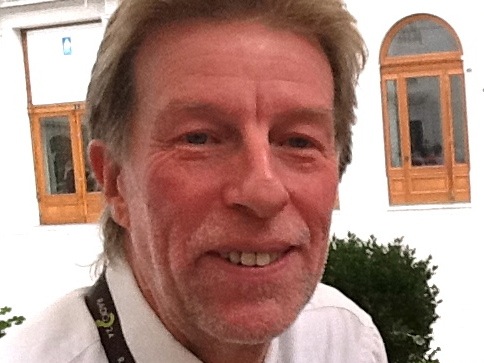 According to Roberto Cosolini, the city’s mayor, some 30,000 people participated in one or other of the Trieste Next events organized over three days from 28 to 30 September – an attendance that had exceeded all expectations.
According to Roberto Cosolini, the city’s mayor, some 30,000 people participated in one or other of the Trieste Next events organized over three days from 28 to 30 September – an attendance that had exceeded all expectations.
Looking forward, the closing session also attempted to make a link between this year’s theme, ‘Save the Food’, with next year’s theme of ‘Water’. To this end, TWAS invited Nick Davidson, Deputy Secretary General, of the Ramsar Convention on Wetlands, to present the closing lecture.
The Convention on Wetlands of International Importance, called the Ramsar Convention, is an intergovernmental treaty signed in the Iranian city of Ramsar, in 1971, that promotes local and national action and international cooperation in the conservation and wise use of wetlands and their resources.
According to the Convention, wetlands include lakes and rivers, swamps and marshes, wet grasslands and peatlands, oases, estuaries, deltas and tidal flats, near-shore marine areas, mangroves and coral reefs, and human-made sites such as fish ponds, rice paddies, reservoirs and salt pans.
Davidson began his talk by highlighting the reasons why we need to protect these precious areas: they are typically sites of great biological diversity, providing the water and primary productivity upon which countless species of plants and animals depend for survival. They also support high concentrations of birds, mammals, reptiles, amphibians, fish and invertebrate species. “Wetlands,” Davidson pointed out, “are a source, store and provision of clean water for all of us. If we damage our wetlands, we compromise our lives and our wellbeing.”
We all depend on water, but between 1950 and 2000, the increase in the needs of our increasing global population meant that, on average, every person had access to 60% less water. By 2025, this trend will increase dramatically, leaving two out of every three people without enough water for their daily needs. “We need to increase our water use efficiency, particularly in agriculture – the sector responsible for most of our water use,” warned Davidson.
Davidson went on to describe how we continue to undervalue our water and wetlands, and especially the ecosystem services they provide. Indeed, the signs are not good. Many countries continue to build on floodplains. In 2007, for example, floods in Britain caused some US$5 billion-worth of damage, mostly to property and infrastructure built on floodplains. Although there is evidence that the rate at which wetlands are being destroyed in Western Europe may be decreasing, approximately 68% of the Danube floodplain has already been lost to development. In addition, the rate of wetland loss is certainly increasing in East Asia, where massive areas are being drained or converted for agriculture and building, industry and infrastructure.
“We need to put water at the heart of the green economy. Rather than trying to fight and control water, as we do now with our dams and canalization of rivers,” concluded Davidson, “maybe we need to ‘go with the flow’. We need to protect our wetlands as natural reservoirs, and allow them to sustain the water cycle that is essential for life on Earth.
“The choice of water as the theme for the 2013 edition of Trieste Next is very appropriate,” continued Davidson, “as 2013 has been designated ‘United Nations International Year of Water Cooperation’.” Of course, the theme of water is also particularly relevant to TWAS. The Academy will be involved again in the 2013 edition of Trieste NEXT, and is looking forward to collaborating with its members and supporters to provide ideas, material and speakers to raise awareness on one of the ‘grand challenges’ that the world, and developing countries in particular, are now facing.

